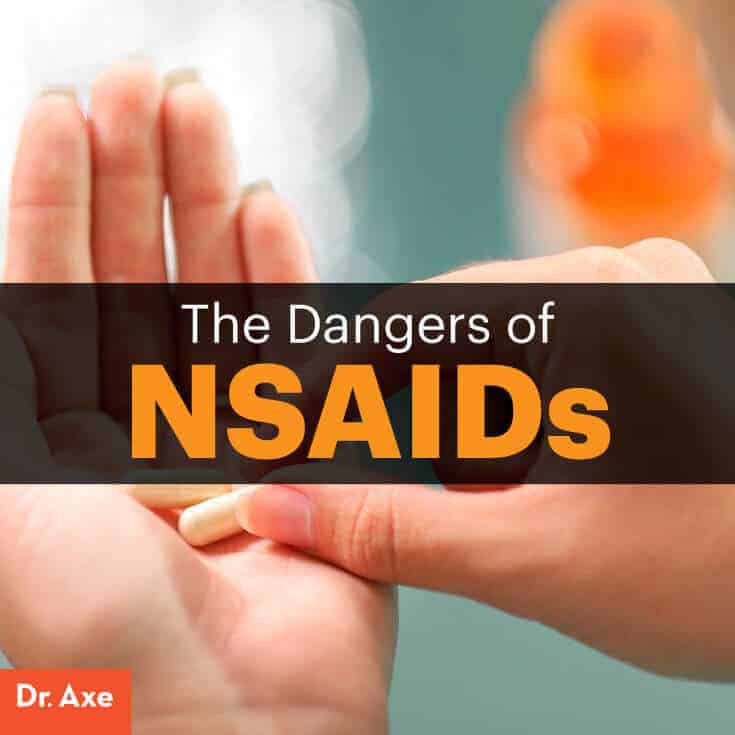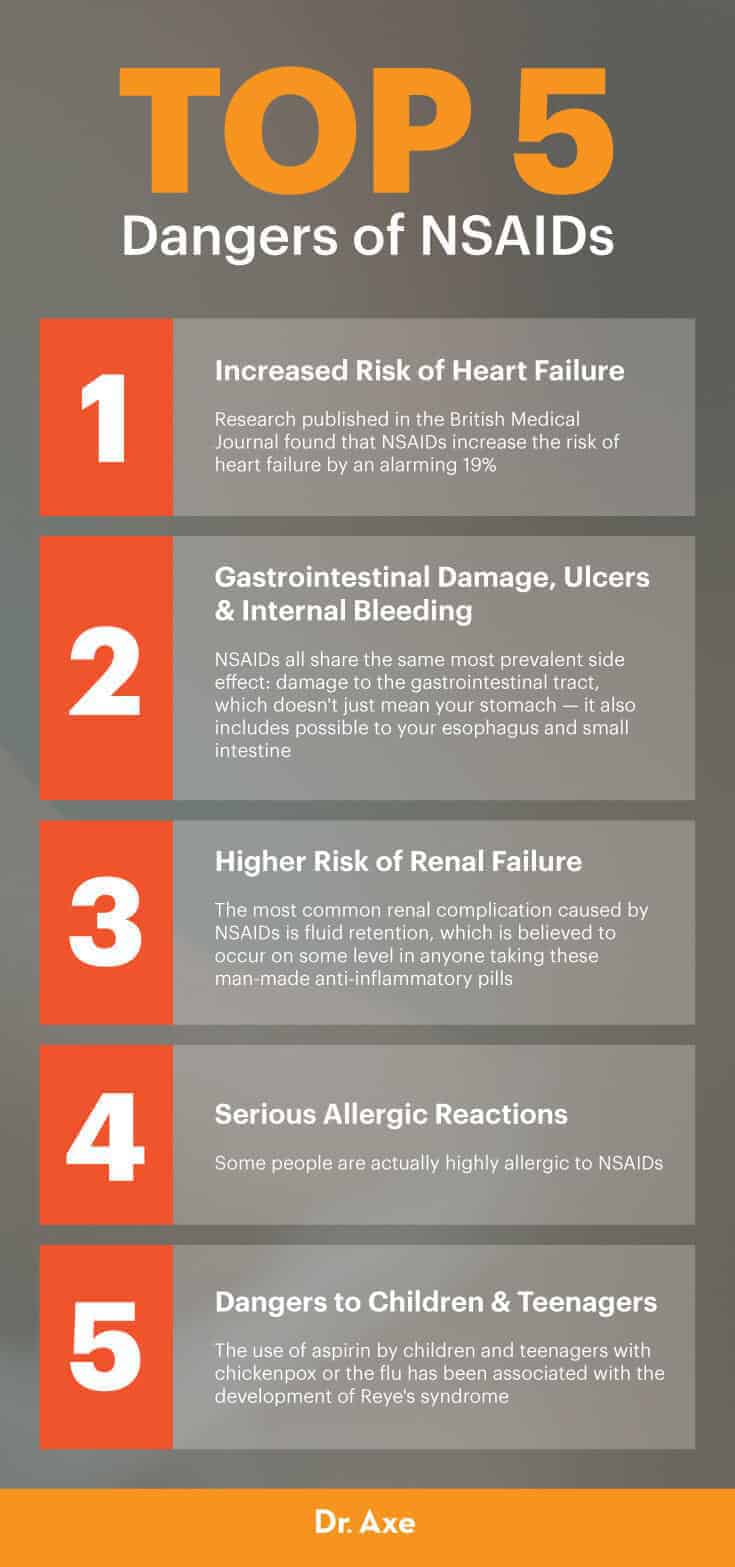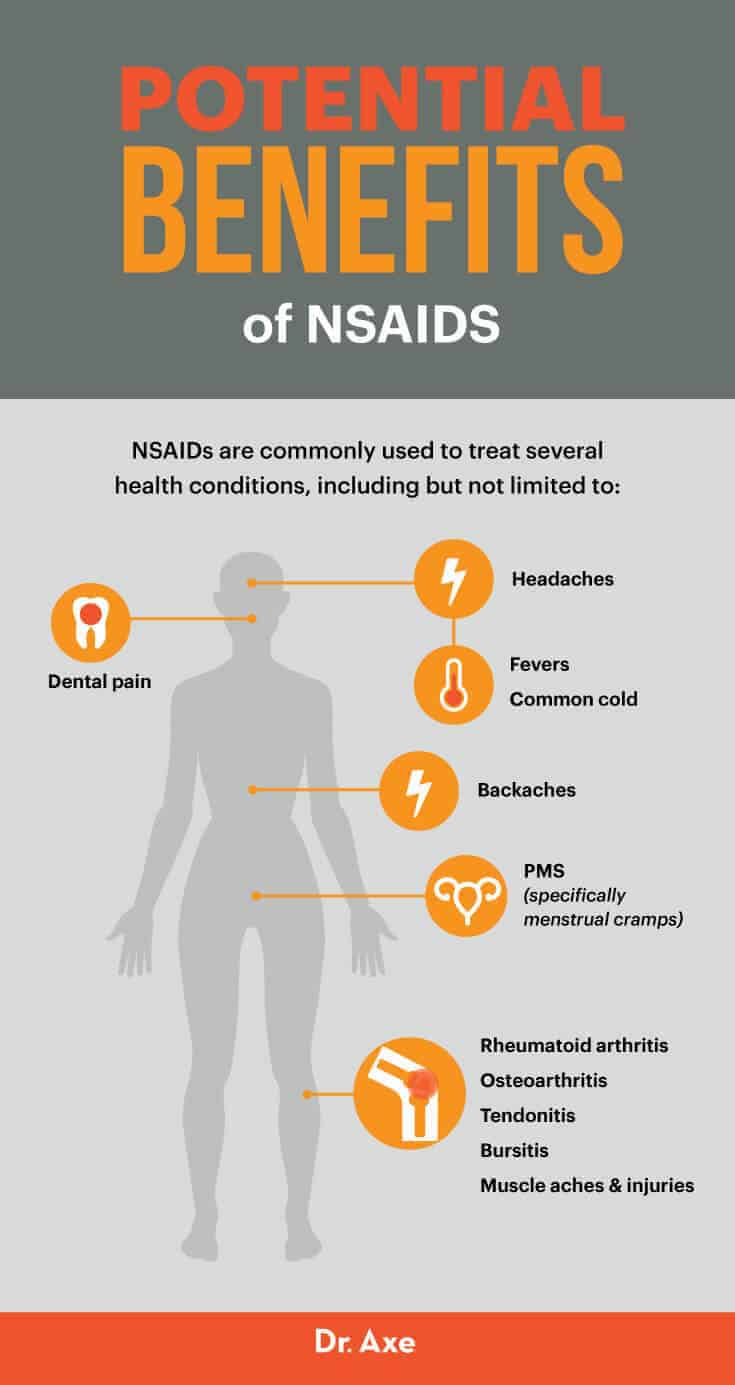This Dr. Axe content is medically reviewed or fact checked to ensure factually accurate information.
With strict editorial sourcing guidelines, we only link to academic research institutions, reputable media sites and, when research is available, medically peer-reviewed studies. Note that the numbers in parentheses (1, 2, etc.) are clickable links to these studies.
The information in our articles is NOT intended to replace a one-on-one relationship with a qualified health care professional and is not intended as medical advice.
This article is based on scientific evidence, written by experts and fact checked by our trained editorial staff. Note that the numbers in parentheses (1, 2, etc.) are clickable links to medically peer-reviewed studies.
Our team includes licensed nutritionists and dietitians, certified health education specialists, as well as certified strength and conditioning specialists, personal trainers and corrective exercise specialists. Our team aims to be not only thorough with its research, but also objective and unbiased.
The information in our articles is NOT intended to replace a one-on-one relationship with a qualified health care professional and is not intended as medical advice.
The Dangers of NSAIDs
October 18, 2016

The dangers of NSAIDs are well-known yet often ignored, but now new research is making NSAID use even more questionable. What are NSAIDs? NSAIDs, aka nonsteroidal anti-inflammatory drugs, are one of the most commonly used pain relievers in the world today. In fact, most painkillers on the market today are NSAIDs.
They might effectively and temporarily decrease pain, but according to analysis of almost 10 million patient medical records, that dangers of NSAIDs are pretty clear. For instance, they may raise the risk of heart failure by nearly 20 percent. That risk increases with the amount of NSAIDs a person takes, says study author Andrea Arfe, a Ph.D student at the University of Milano-Bicocca, in Italy. Even though study findings are based on prescription NSAIDs, the results might apply to over-the-counter NSAIDs as well. Arfe notes: “Although over-the-counter NSAIDs are typically used at lower doses and for shorter durations, they are sometimes available at the same doses as prescription NSAIDs and they may be inappropriately overused.” (1) In fact, one March 2018 study of NSAID users found 11 percent of people taking ibuprofen and 4 percent of users of non-ibuprofen NSAIDs exceeded the daily dosage limit. Going over the recommended dosage occurred on 9.1 percent of usage days. (2)
NSAIDs are a type of anti-inflammatory drug that are available over the counter and are very commonly taken for pain. If NSAID isn’t ringing a bell, you might be more familiar with generic names like ibuprofen or name brand NSAIDs like Aleve®, Motrin® and Advil®. NSAIDs have become well-known for their link to stomach bleeding, but now even the FDA has made its overall NSAID warning stronger. It wants consumers to be aware that NSAIDs cause an increased risk of heart attack and stroke, especially in higher doses. (3) I’ve talked before about ibuprofen overdose, and now I want to tell you all about NSAIDs in general, including how exactly they’re effective, why the dangers of NSAIDs really can’t be taken lightly and what are some safer, natural alternatives.
5 Key Dangers of NSAIDs + Other Common Side Effects
While pain medication has its uses, the dangers of NSAIDs are too great to ignore. These dangers of NSAIDs include risks for your heart, gastrointestinal tract and kidneys, among others.
1. Increased Risk of Heart Failure
Doctors have been concerned for some time that NSAIDs might play a role in heart failure since they cause consumers to retain sodium. Now, research just published in the British Medical Journal finds that NSAIDs increase the risk of heart failure by an alarming 19 percent. The risk directly rises with the amount of NSAIDs taken.
This study was based on the analysis of the medical history of millions of patients from four European countries (the Netherlands, Italy, Germany and the United Kingdom). The participants were all 18 years of age or older and had started NSAID treatment between 2000 and 2010. This large study specifically looked at the risk of hospital admission for heart failure and the use of 27 individual NSAIDs. The researchers found that current use of any NSAID was found to be associated with a 19 percent increase of risk of hospital admission for heart failure. (4)
Overall, the study found that seven traditional NSAIDs and two COX-2 inhibitors in particular led to an increased risk of heart failure.
Five NSAIDs in particular were linked to significant increased risk of heart failure admission:
- Diclofenac,
- Ibuprofen (brand name example: Motrin®)
- Indomethacin
- Ketorolac
- Naproxen (brand name example: Aleve®)
- Nimesulide
- Piroxicam
The two COX-2 inhibitors are etoricoxib and rofecoxib, which are both currently not approved for use in the United States. When diclofenac, indomethacin, piroxicam, etoricoxib and rofecoxib were taken at “very high doses” (meaning two or more daily doses), the risk for heart failure doubled.
2. Gastrointestinal Damage, Ulcers and Internal Bleeding
NSAIDs all share the same most prevalent side effect — damage to the gastrointestinal tract, which doesn’t just mean your stomach. It also includes possible threats to your esophagus and small intestine. According to gastroenterologist Byron Cryer, MD, a spokesperson for the American Gastroenterological Association, more than half of all bleeding ulcers are caused by NSAIDs. (5)
Aspirin is the only NSAID that inhibits the blood clotting for a prolonged period of time (four to seven days), which is why many doctors recommend it for preventing blood clots that cause heart attacks and strokes. (6) While it may be successful at reducing blood clots, aspirin is an NSAID that’s especially known for causing gastrointestinal bleeding and ulcers. Anyone can develop a stomach ulcer while taking NSAIDs. Yes, that’s right — anyone. Being over 60 years old, smoking cigarettes, having multiple medical problems or having a family history of ulcers puts you at an even greater risk of experiencing stomach bleeding, one of the many dangers of NSAIDs.
Long-term or high-dose use of NSAIDs can also lead to ulcers developing in the gut. These are known as peptic ulcers. Peptic ulcers form because the action of NSAIDs block the COX-1 enzyme from protecting the stomach lining.
3. Higher Risk of Renal Failure
According to research published in the Journal of Clinical Pharmacology, NSAIDs have a negative effect on renal (kidney) health in essentially all patients using NSAIDs. The most common renal complication caused by NSAIDs is fluid retention, which is believed to occur on some level in anyone taking these man-made anti inflammatory pills. Clinically detectable edema occurs in less than 5 percent of patients. (7) Edema is a medical term for swelling caused by excess fluid being trapped in your body’s tissues. NSAIDs also encourage the body to hold on to sodium which can lead to varying degrees of reduction in kidney function. (8)
Complete avoidance of nonsteroidal anti-inflammatory drugs is recommended for most people with chronic kidney disease.
4. Serious Allergic Reactions
Some people are actually highly allergic to NSAIDs. For these individuals, the dangers of NSAIDs can include experiencing a scary shortness of breath. For an asthma sufferer, the risk of experiencing serious allergic reaction to NSAIDs is even higher. Other allergic reactions can include wheezing, rashes and throat swelling. If you have a serious allergic response to one NSAID then you’re likely to have a similar response to a different NSAID so you should avoid all NSAIDs. (9)
5. Dangers to Children and Teenagers
There are also specific dangers of NSAIDs for the younger population. The use of aspirin by children and teenagers with chickenpox or the flu has been associated with the development of Reye’s syndrome. This syndrome is rare yet serious. It can cause liver as well as brain damage, and sometimes even fatal liver disease or permanent brain damage. Aspirin and non-aspirin salicylates should never be used in children and teenagers with suspected or confirmed chickenpox or influenza. In general, children under the age of 16 should not take aspirin products. (10)

Other common side effects and dangers of NSAIDs include:
- Constipation
- Decreased appetite
- Diarrhea
- Dizziness
- Drowsiness
- Headache
- Heartburn
- High blood pressure
- Leg swelling
- Liver problems
- Nausea
- Rash
- Ringing in the ears
- Stomach pain
- Vomiting
What Are NSAIDs?
It’s estimated that every single day in this country more than 30 million Americans take NSAIDs for common pain and inflammation issues like headaches. (11) NSAIDs are also the most commonly prescribed anti-inflammatory medicine for management of inflammatory conditions like arthritis. (12)
Most people are familiar with nonprescription over-the-counter NSAIDs, such as aspirin and ibuprofen. But even if you’ve taken NSAIDs for years, you still might be wondering what are NSAIDs exactly? NSAIDs is an acronym that stands for nonsteroidal anti-inflammatory drugs. They’re most commonly used for pain and inflammation reduction, but how do they work exactly? Simply put, they work by blocking the body’s production of chemicals known as prostaglandins that cause inflammation and pain. More specifically, they block the cyclo-oxygenase (COX) enzymes, which in turn inhibits production of prostaglandins.
In the 1990s, researchers discovered that two different COX enzymes exist: COX-1 and COX-2. COX-1 is present in most tissues, including the stomach lining. It’s also involved in kidney function. COX-2 is the enzyme primarily present at sites of inflammation. Both COX-1 and COX-2 convert arachidonic acid to prostaglandin, resulting in pain and inflammation. The anti-inflammatory action of NSAIDs is mainly due to inhibition of COX-2, and their unwanted side effects (like bleeding ulcers) are largely due to inhibition of COX-1. (13)
Is aspirin an NSAID? Yes, aspirin and ibuprofen are some of the most common over-the-counter, nonprescription NSAIDs. Is Tylenol an NSAID? No, Tylenol is not a member of the NSAID family. Tylenol® is the brand name for an over-the-counter form of acetaminophen. Tylenol and other forms of acetaminophen can also ease pain and reduce fevers, but they do nothing for inflammation. Acetaminophen products are known for being easier on the stomach than NSAIDs, but they can damage the liver, among other serious side effects. (14)
You can easily obtain over-the-counter NSAIDs without a doctor’s prescription. These OTC varieties will come in significantly lower doses than the prescription versions but are still quite powerful.
Common OTC NSAIDs include:
- Aspirin compounds (such as Bayer®, Bufferin® and Excedrin®)
- Ibuprofen (such as Motrin® and Advil®)
- Naproxen sodium (such as Aleve®)
Potential Benefits of NSAIDs
NSAIDs are best known and utilized for pain relief, inflammation, stiffness and fevers. They can also prevent blood clots, which is helpful in some cases but not so helpful in others.
NSAIDs are commonly used to treat several health conditions, including but not limited to: (15)
- Rheumatoid arthritis
- Osteoarthritis
- Muscle aches and injuries
- Headaches
- Backaches
- Dental pain
- Pain caused by gout
- Bursitis
- Tendonitis
- PMS (specifically menstrual cramps)
- Fevers
- Common cold
Even though NSAIDs might work to temporarily calm the pain and inflammation associated with these issues, these man-made painkillers are not without their significantly concerning side effects, as we’ve learned, and the serious dangers of NSAIDs make them concerning. Luckily, there are safer alternatives out there.
Better Alternatives to NSAIDs
When it comes to dangers of NSAIDS, more specifically heart health concerns, the American Heart Association recommends that all NSAIDs should be used at their lowest effective doses. In addition, it’s recommended that NSAIDs should be avoided when possible by patients with cardiovascular risk factors, including high blood pressure, high cholesterol, angina, edema, recent bypass surgery, and a history of myocardial infarction or other cardiovascular events. (16)
I’m not denying that NSAIDs can effectively reduce inflammation and pain as well as fevers, but at what cost to your overall health? The gastrointestinal concerns like bleeding ulcers are scary enough, but you also have some life-threatening heart health concerns. Instead of taking synthetic anti-inflammatory meds, you can always turn to nature’s many painkillers.
I highly recommend opting for natural painkillers over NSAIDs when you can —such as adding wasabi in your diet since it’s a spicy food with natural painkilling properties. You can also incorporate more bone broth into your meals on a regular basis.
It doesn’t stop at foods, either. You may also want to look into rolfing, a pain relief method that focuses on soft tissue manipulation and movement education to realign your body’s myofascial structure. When you have pain, it’s also very smart to avoid pro-inflammatory and pro-pain items like sugar, alcohol, caffeine and trans fats.
If you’re turning to NSAIDs to reduce a fever, you might want to think twice. First, it’s important to remember that unless a fever is very high, it’s generally harmless and a good sign that your immune system is working properly. But even if it’s nothing to get overly worried about, most people with a fever just can’t want for it to break. The good news is there are natural ways to get rid of a fever. You might want to check those out and give them a try before popping any NSAID pills.

Related: White Willow Bark: The Natural Pain Reliever that Works Like Aspirin
History of NSAIDs
Anti-inflammatory drugs actually have natural roots in specific plants and plant extracts that were found to be effective at treating inflammation, pain and fever. The whole principle of NSAIDs is said to go back over 5,000 years to the use of willow bark for musculoskeletal pain. Musculoskeletal pain is pain that affects the muscles, ligaments, tendons and bones.
In 1828, the willow tree bark’s active pain-fighting ingredient, salicin, was isolated. However, it wasn’t until 1874 that the industrial production of salicylic acid began. Then in 1897, aspirin (acetylsalicylic acid) was developed to improve the palatability of the painkiller for consumers. (17)
Many drugs used for inflammation and pain contain steroids, which have questionable side effects of their own. The term nonsteroidal distinguishes NSAIDs from steroid-centric drugs, which also have anti-inflammatory effects on the body like NSAIDs. Nonsteroidal is a term that was first used in 1960 to separate NSAID drugs from steroid treatment related to medical tragedies.
In the 1960s, indomethacin (1964) and ibuprofen (1969) were some of the first non-aspirin NSAIDs. Many new types of NSAIDs have been introduced to consumers since then, like diclofenac in 1974 and naproxen in 1976. Fast-forward to today, and NSAIDs are some of the most common pain relievers in the entire world.
Final Thoughts on the Dangers of NSAIDs
You should definitely talk to your doctor before using NSAIDs if you’re over 60, taking prescription blood thinners, or have stomach ulcers or other bleeding problems. For most healthy people, occasionally taking an over-the-counter NSAID might not cause any noticeable problems, but frequent or chronic use is really proving itself to be lethal. I always suggest natural painkillers over NSAIDs any day.
Gastrointestinal side effects are the most common dangerous threat to chronic NSAID users. According to the American College of Gastroenterology, most ulcers caused by NSAIDs heal once you stop taking the drug so the sooner you stop taking NSAIDs the better.
This latest study linking NSAIDs to an increased risk of heart failure will hopefully make people pause before reaching for that bottle of NSAIDs. Yes, you want to get rid of your pain and inflammation as soon as possible, and I definitely understand that you don’t want to suffer. But I hope you look to utilize all of the natural pain remedies and tools out there so you can truly get to the root of your problem and give yourself some real and lasting relief.











